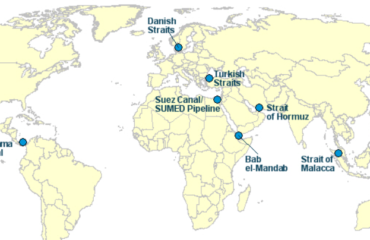A Historical Look at the Importance of Logistics
Throughout human history, the movement of goods and services from one place to another has always played a vital role. This mobility began in ancient times with the simple exchange of a tool or material from local areas to other regions, and over time, it evolved into international trade routes, intricate sea routes, and eventually integrated logistic networks in a globalizing world. Logistics aims not just to transport goods and services, but also to optimize this transportation process, minimize costs, and maximize efficiency. Historically, the evolution of logistics stands out not only for its commercial success but also for its role in shaping civilizations and cultures. This demonstrates that logistics is not just an economic activity, but also has a social, cultural, and political dimension.
Origin of the Word “Logistics”
The word “logistics” is derived from the Greek word “logistikos,” which means “related to calculation.” However, the modern sense of logistics differs slightly from the historical use of the term. In military terminology, logistics refers to the materials, supply, and transportation processes required for an army to move, deploy, and sustain itself in battle. Over time, this concept was adapted to the civilian sector and began to be used to denote the effective and efficient movement of goods and services from production sites to consumption sites. Today, logistics encompasses a broad range of processes including transportation, storage, inventory management, packaging, and the flow of information.
Historical Evolution of Logistics
Logistics has undergone a significant evolution from simple trading activities to global supply chains. Understanding how logistics changed during different periods of human history allows us to better grasp the origins of today’s logistic practices.
Ancient Era: The first traces of logistics can be seen in ancient civilizations. In particular, the emergence of great civilizations in the Nile, Mesopotamia, and the Indus Valley necessitated the transport of goods over broader areas. During this period, rivers were the primary mode of transportation.
Ancient Rome: The Roman Empire was one of the first major civilizations to recognize the importance of logistics. To govern its vast territories and maintain a sustainable empire, Rome established a complex road system and military logistic network.
Middle Ages: Road transport gained importance with the popularization of horse-drawn carriages and camel caravans. Additionally, the discovery of significant maritime routes and trade routes, such as the Silk Road, played a crucial role in the logistic evolution of this era. Industrial Revolution: In the 18th and 19th centuries, the invention of the steam engine and railway system radically transformed logistics. Goods could be transported at unprecedented speeds and quantities.
20th Century: The rise of motorized vehicles and the aviation industry further accelerated logistics. With the advancement of computer technology, complex algorithms and software began to be used to optimize logistical processes.
21st Century and Today: Digitalization, automation, and artificial intelligence technologies have helped logistics transition from just a physical goods transportation process to an integrated and fully optimized supply chain. Today, numerous innovations from smart warehouse management systems to drone deliveries highlight the logistics sector’s continuous reshaping.
The Historical Importance of Logistics
Throughout history, logistics has played a determining role in the rise and fall of civilizations. Understanding its historical significance helps us better grasp its place and value in the modern world.
Rise of Civilizations: In ancient times, especially in great civilizations such as Mesopotamia, Egypt, and the Indus Valley, logistics was used to transport agricultural products, raw materials, and crafts to regional markets. This ensured that densely populated cities were nourished and their needs met.
Expansion of Empires: Logistics played a critical role in the expansion of great empires like Rome, Persia, and the Ottoman Empire, both in military campaigns and in establishing dominance in new territories. Military logistics allowed armies to advance rapidly over long distances and gain an advantage in warfare.
Economic Growth: Throughout history, logistics supported economic growth, particularly through significant trade routes such as the Silk Road and the Spice Route. These routes facilitated intercultural interactions and allowed civilizations to prosper economically.
Technological Advancements: During the Industrial Revolution, technological innovations such as railways and steamships allowed products to be distributed faster and over broader areas. This led to an acceleration of trade and production in a globalizing world.
Globalization: In the 20th and 21st centuries, logistics became determinative in the formation of global supply chains. Products were quickly delivered to broader markets worldwide, strengthening economic ties between countries and companies.
Importance in Times of Crisis: Historically, logistics has been of critical importance during times of crisis, such as wars, natural disasters, or pandemics. In delivering essential supplies and aid swiftly to the affected regions, logistics emerged as a life-saving factor.
Throughout history, logistics has occupied a central role in the success of civilizations and economies. Humanity has consistently seen how crucial the effective transportation of goods and services is for the development, prosperity, and survival of societies. Therefore, the historical importance of logistics underscores that it’s not just an economic process, but also a force that shapes the fate of communities.

